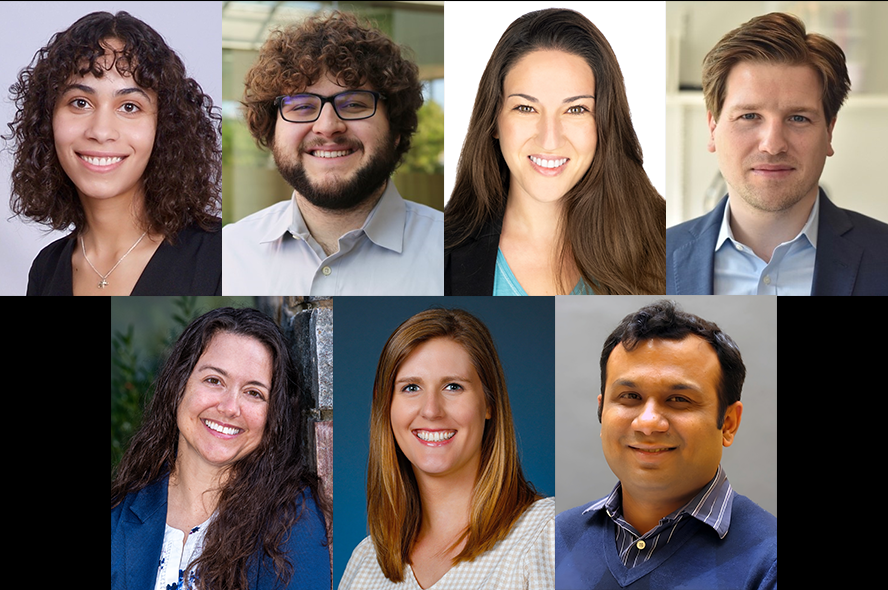Tufts welcomes new faculty in 2024

Seven new full-time engineering faculty join Tufts University this year. These faculty members come to the School of Engineering with expertise in a diverse range of fields, including robotics, biomaterials, artificial intelligence, computational analysis, and infrastructure management.
Elyse Cornwall, Assistant Teaching Professor in Computer Science Elyse Cornwall earned her MS and BS in Computer Science from Stanford University. Her studies focused on human-computer interaction and theoretical computer science. |
Christopher Magnano, Assistant Teaching Professor in Computer Science Christopher Magnano received his MS in Computer Science from the University of Wisconsin–Madison. His research focuses on making computational analyses more accessible to biological researchers. |
Reuth Mirsky, Assistant Professor in Computer Science Reuth Mirsky received her PhD on plan recognition in real-world environments from Ben Gurion University. In her research, she seeks algorithms, behaviors, and frameworks to improve AI with human-inspired design. |
Markus Nemitz, Assistant Professor in Mechanical Engineering Markus Nemitz earned his PhD from the University of Edinburgh. His research interests encompass 3D-printable robotics, real-time adaptive additive manufacturing, and integrated robot ecosystems. |
Shelly Peyton, Professor and Chair in Biomedical Engineering Shelly Peyton earned her PhD from the University of California, Irvine. Her research focuses on designing and adapting biomaterials to better understand breast cancer metastasis and traumatic brain injury. |
Lauryn Spearing, Assistant Professor in Civil and Environmental Engineering Lauryn Spearing received her PhD in Civil Engineering from the University of Texas at Austin. She uses a systems thinking approach to understand complex problems at the intersection of technical, social, and natural systems. |
Hari Sundar, Associate Professor in Computer Science Hari Sundar received his PhD from the University of Pennsylvania. His research focuses on the development of computationally optimal parallel, high-performance algorithms that are efficient and scalable on state-of-the-art architectures. |
Department:
Biomedical Engineering , Civil and Environmental Engineering , Computer Science , Mechanical Engineering